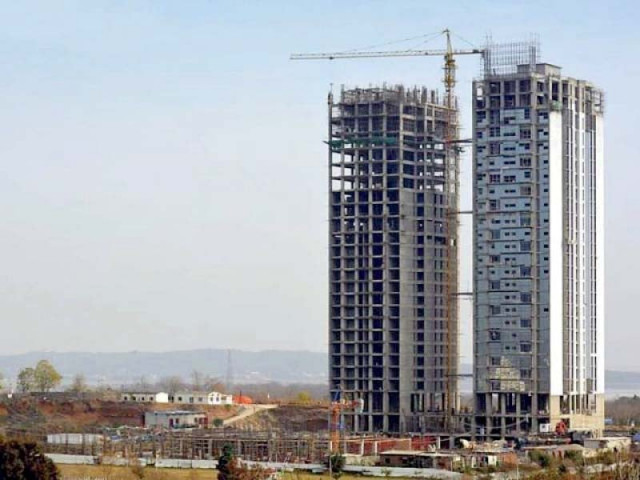Budget 2025-26 proposes relief for corporate, real estate sectors
High-income pensioners, solar panel imports, interest income see tax burdens

The government has proposed to slash the ‘Super Tax’ rate by 0.5 per cent for corporations with an annual income of Rs200 million to Rs500 million in the federal budget for the fiscal year 2025-26. Similarly, a cut in the withholding tax rate on property purchases has also been proposed.
The government has also proposed a 5% hike in the tax rate on interest income, which will raise the rate from the existing 15% to 20%. High-income pensioners will also be brought under the tax net.
Pensioners under the age of 70 whose annual pension is more than Rs10 million will be charged 5% tax. However, those receiving low and middle-range pensions will be exempted from this tax.
Finance Minister Muhammad Aurangzeb, in his budget speech, revealed that the pension scheme had been modified through executive orders over the past few decades, which has put a burden on the national treasury.
To rectify the pension scheme and reduce the burden on the kitty, the government has introduced reforms, which include discouraging early retirement and linking pension increases to the Consumer Price Index (CPI).
Read more: Finance minister unveils anti-digital, pro-realty sector budget
The finance minister also said that the family pension duration has been restricted to 10 years after the spouse's death, and multiple pensions have been abolished. Upon re-employment after retirement, an individual will have to choose between pension and salary.
The corporate sector has been given relief in the budget with a reduction in Super Tax and withholding tax on property purchases. The government has decided to reduce the Super Tax rate for the corporate sector. The Federal Excise Duty on the transfer of commercial properties, plots, and houses has been abolished, and the federal government has decided to promote mortgage financing.
Relief has been announced for the corporate sector, with a 0.5% reduction in Super Tax for companies with an annual income of Rs200 to Rs500 million. The withholding tax rate on property purchases has also been reduced. The withholding tax has been reduced from 4% to 2.5% in the first slab, from 3.5% to 2% in the second slab, and from 3% to 1.5% in the third slab.
The Federal Excise Duty on the transfer of commercial properties, plots, and houses has been abolished, which was 7% in the previous budget. The federal government has decided to promote mortgage financing by announcing tax credits for houses up to 10 marlas and flats up to 2,000 square feet.
Similarly, the stamp paper duty on property purchases in Islamabad has been reduced from 4% to 1%.
Also read: Cabinet approves 10% salary hike for govt employees
Tough decisions had to be made for economic improvement, and the tax gap was estimated at Rs5.5 trillion, which was unacceptable. Digital production tracking is being introduced for cement, fertiliser, beverages, and textiles. An artificial intelligence-based system is being introduced for sales and income tax.
FinMin Aurangzeb said that revenue from the sugar sector increased by 47%, 390,000 non-filers were identified, and Rs9.8 billion in fake refund claims was blocked. From July 1, the 800-column return will be simplified to a simple format requiring only 7 basic pieces of information.
There will be savings of Rs3,000 billion from agreements with Independent Power Producers (IPPs). Losses of power distribution companies have been reduced by Rs140 billion. The price of electricity has been reduced by more than 31%. Agreements with IPPs have been revised, resulting in savings of Rs3,000 billion.
The government has proposed several new tax measures aimed at increasing revenue and bringing various sectors of the economy into the tax net. According to the budget document, a 5% increase in the tax rate on interest income has been decided, which will raise the rate from 15% to 20%. However, this increase will not be applicable to National Savings Schemes.
The government has also decided to bring e-commerce or online businesses into the tax net. Individuals or companies selling goods or services through online platforms will be subject to tax.
Moreover, tax will be imposed on goods and services ordered online. E-commerce businesses will be required to submit their monthly transaction data and tax reports to the relevant authorities. The budget has also proposed a 25% tax on income earned through debt.
To ensure fair competition between imported and locally manufactured solar panels, the budget has proposed that imports of solar panels be taxed at a rate of 18%. The finance minister said that this measure will play a crucial role in promoting the local industry of solar panels in Pakistan.





1733130350-0/Untitled-design-(76)1733130350-0-208x130.webp)















COMMENTS
Comments are moderated and generally will be posted if they are on-topic and not abusive.
For more information, please see our Comments FAQ